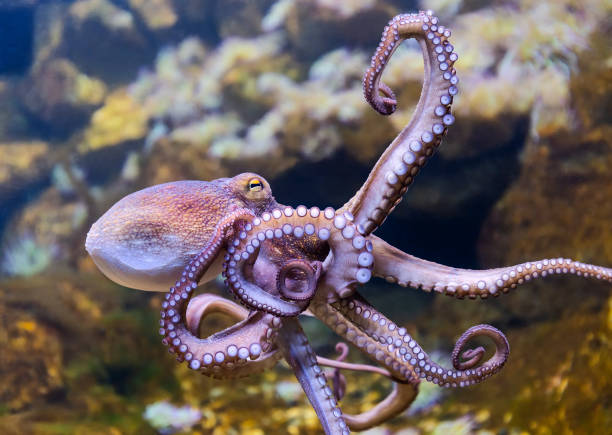Understanding the Remarkable Intelligence of Octopuses
Octopuses are enigmatic creatures that have fascinated marine biologists and animal lovers alike for decades. They are renowned for their impressive intelligence, problem-solving capabilities, and unique physiological adaptations. This article delves into the fascinating world of octopuses, exploring their cognitive abilities, behavioral patterns, and the latest research findings related to these extraordinary marine animals.

Background and Historical Context
The octopus, a member of the cephalopod family, has been a subject of study for many years. These marine animals are known for their distinct eight-armed body structure, exceptional camouflage capabilities, and, most notably, their cognitive prowess. Historically, octopuses have been the stuff of myths and legends. Ancient Greek mythology, for instance, features the Kraken, a giant sea monster believed to be an enormous octopus. In modern times, however, scientific investigation has replaced myth with knowledge and understanding about these intriguing creatures.
The Cognitive Brilliance of Octopuses
Octopuses are believed to be among the most intelligent of all invertebrates. They have the largest brain-to-body mass ratios of any invertebrate, comparable to that of many vertebrates. They are known to exhibit a range of complex behaviors such as problem-solving, tool use, and even play. For instance, octopuses have been observed using coconut shells as shelters, demonstrating a level of problem-solving and forward planning previously thought to be unique to humans and a few other higher mammals.
Latest Research and Developments
Current research has continued to unearth fascinating insights into the intellectual capabilities of octopuses. A recent study published in the renowned scientific journal, ‘Nature’, suggests that octopuses, along with cuttlefish and some species of squid, can alter their RNA (Ribonucleic Acid) sequences to adapt their neural functions to changing environments. This finding presents a new dimension to understanding the cognitive abilities of these creatures and their remarkable adaptability.
The Impact of Octopus Intelligence on Pet Trade
The intelligence and unique behaviors of octopuses have made them a popular choice in the exotic pet trade. However, their specific environmental requirements and high levels of activity make them challenging to keep in captivity. The cost of octopus ownership varies, with the price of the animal itself typically ranging from $20 to $100, depending on the species. However, the overall expense, including tank setup and maintenance, can run into thousands of dollars. Despite the challenges and costs, the demand for octopuses as pets continues to grow, impacting both their populations in the wild and the pet market as a whole.
Concluding Thoughts
The intelligence of octopuses is a testament to the cognitive diversity found in the animal kingdom. Their remarkable problem-solving abilities, adaptability, and complex behaviors continue to captivate scientists and animal enthusiasts around the world. As we explore and understand more about these fascinating creatures, we must also consider the ethical implications of their intelligence, especially in terms of their use in the pet trade and their treatment in captivity. Only then can we truly appreciate and respect the profound cognitive abilities of these incredible creatures.




